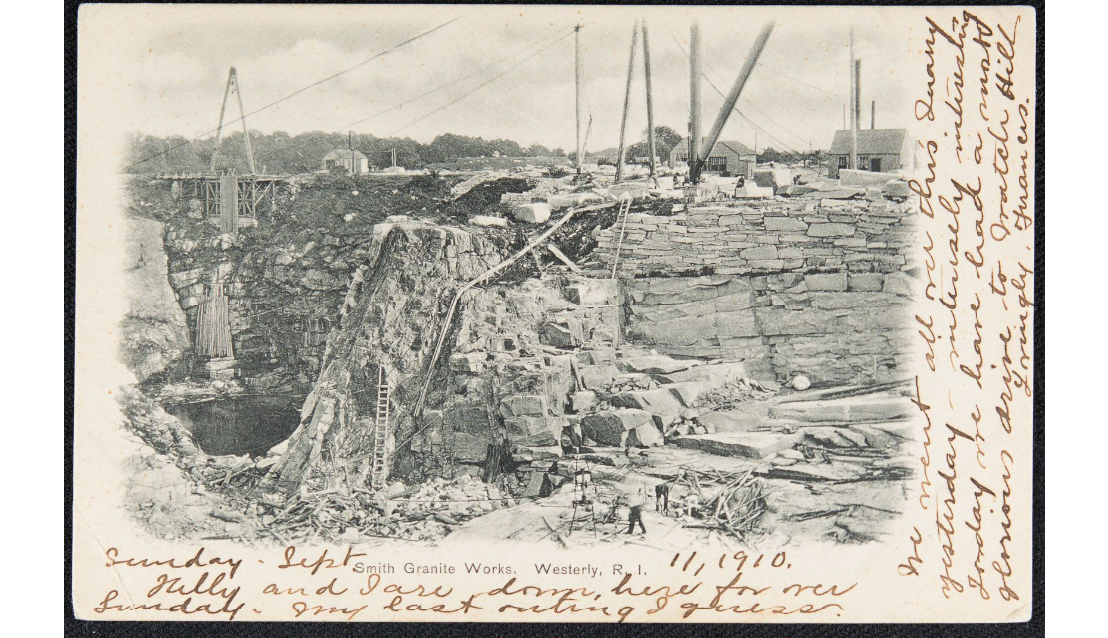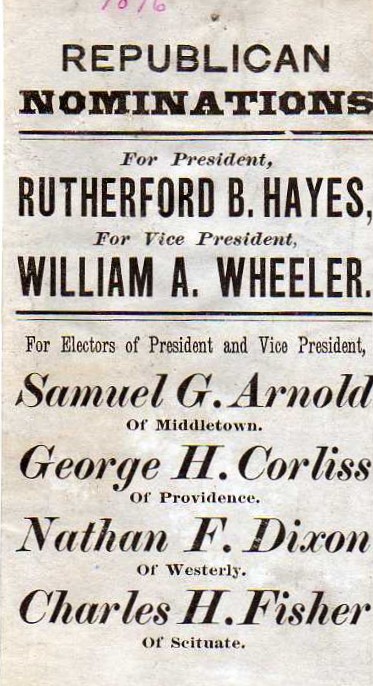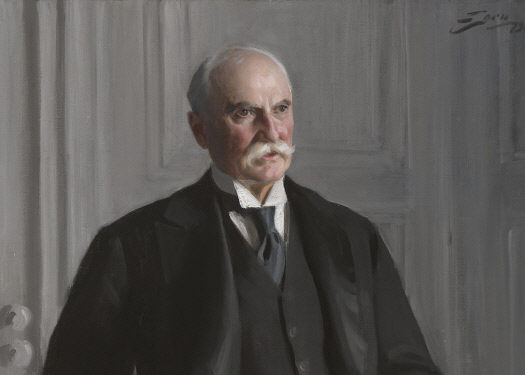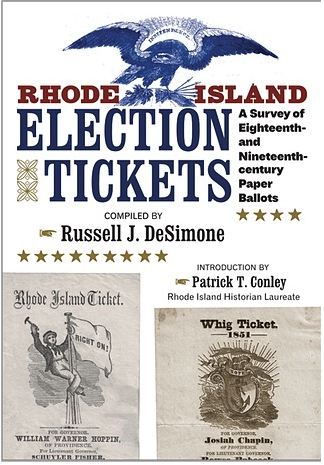[Editor’s Note: This excerpt (from an 1880 report) explains how some big businesses tried to control the manner in which their employees voted in the presidential election year of 1876 in the state of Rhode Island. This was possible because the ballots were not secret. Each party had an election ticket with its candidates listed. The ticket was often of a certain color and so could be easily tracked. Business owners generally supported the Republican Party ticket. The first section is called “Civilized Bulldozing in Rhode Island.” The term “bulldozing” was slang for influencing the vote. According to Patrick T. Conley, to curb these problems the Rhode Island General Assembly passed a law at its March 29, 1889 session which effectively adopted the Australian type of secret ballot system reform. As it turned out, the Republican Party’s nominee for President in 1876, Rutherford B. Hayes, handily won the vote in Rhode Island, but the business owners discussed below were taking no chances.]
Civilized Bulldozing in Rhode Island
In pursuing another duty enjoined by the Senate in Rhode Island, this subject of controlling the votes of employees by the employers, through fear of loss of work, was incidentally examined. At Westerly, in the southwestern part of the state, there are two corporations known as the New England Granite Company and The Smith Granite Company. They employed in 1876 about 150 men in getting out and preparing granite. Direct influence was brought to bear upon these employees about a week before the Presidential election of 1876 by these corporations issuing a handbill and circulating it where the men worked, which stated that the election of Mr. Tilden would be a great injury to their business, and by the concluding paragraph, which declared they would secure their own interest by voting against Mr. Tilden. The circular was in these words:
TO ALL VOTERS
Employed by the
- E. GRANITE WORKS AND THE SMITH GRANITE CO.
Having become fully convinced that the election of Samuel J. Tilden and a Democratic Congress, on the 7th of November, will do a great injury to our business, and will also be a National Calamity, we do most earnestly advise all VOTERS IN OUR EMPLOY to vote the Republican Ticket, more especially for a Republican Member of Congress . You will, by so doing, secure your own interest, our interest and the interest of your country.
-The N. E. GRANITE WORKS
-The SMITH GRANITE CO.
The plain implication from the language here used is that the injury to the business of the corporation would result in loss of employment to the workmen, and it undoubtedly had the effect to intimidate voters.
It was shown that at Hope Village in the Congressional election the Republicans used a colored ballot of a very distinctly marked color. At that time there were a number of Democrats employed in the works who attended Democratic meetings and desired to vote that ticket, but when these men came to vote on election day, men in the employ of the Hope Manufacturing Company stood at the ballot box and watched the ballots all day. Some of these Democrats declared that they did not dare to vote.
At Woonsocket there are seven or eight large manufacturing establishments. They employ many workmen, a majority of whom are of foreign birth, and among the employees are many whose political opinions are Democratic. It was shown that at almost every election for years these men voted under the eye of their employers’ agents who were Republicans, and in very many cases under circumstances showing intimidation and fear of loss of work.

The Smith Granite Company quarry operations at Westerly, with a few employees in the foreground, 1910 (Providence Public Library Digital Collections)
Companies’ Agents in Charge of Polling Places
One witness described the acts which he thought amounted to intimidation, in this language:
From the Woonsocket Machine Company at the last Congressional election, they had their overseer posted about two feet from the ballot-box, and he was handing ballots to the operatives as they came up to vote. His name is Charles A. Chase. I remember how a party who did work for the Woonsocket Machine Company, who told me, shortly after the election, that he was going to lose his position, and he did lose it. About a month after that they discharged him because he would not peddle Republican ballots in the shop.
Another witness describes it thus:
I have known men employed in the Woonsocket machine shop to be marched up, in the hall, in squads by a man named Chase, who had some position there (I do not know whether it was that of engineer or what it was) and compelled to hold their hands up with the ballots in them in this manner. [The witness elevated his right hand to a level with his head. ] They walked along and he went with them, watching them until, as each man dropped the ballot in, he took his eye off the man.
At the last Congressional election I saw him march up two squads from the machine shop. I know one man up there who, at the same election, informed me that he wanted to vote the Democratic ticket, but was obliged to vote the Republican ticket, because he had been given to understand that it would be for his interest to do so. His property was mortgaged, and a party who ran on the Republican ticket controlled, or his intimate friend controlled the mortgage at the time. The man was afraid to vote otherwise, he informed me. They have come to me, for instance, and to other Democrats in my hearing and sight and said, “We want a ticket.” This was the evening before the election. And they gave us a ticket and said that they had to carry it or they would lose their job. There is a strong feeling in their minds that if they do not vote the ticket that is given to them by their employers they are liable to be turned off, that they are spotted, and, if anybody is turned off, it will be them. These employees who are Democrats, who have been furnished with tickets or who say, “We shall be furnished with a ticket by the boss or the manufacturing company’s agents,” come to our headquarters and say, “We want a ticket in our pockets that is of our kind, so that we can vote it if we change it for the other.” Well, the employers have found that they were being cheated by the men; that the men, in spite of their convincing advice, had got the tickets that they wanted to vote and had put them in. That accounts for their compelling the men to hold their hands up. They give them their ticket when they get out of the carriage and compel them to hold it up in their hands as they march along through the crowd.
Company’s Time-Keeper Notes How Each Employee Votes
It was shown that in the Tenth Ward of Providence, at the Presidential election of 1876, the time-keeper employed by The Corliss Steam Engine Company was at the polls with his book, and as every man working for his establishment would cast his ballot he would check his name or write his name down upon the book. He was not there as an official of the election. He would watch to see which way a man voted and then take memoranda in his book. Employees complained of this and said they were afraid to vote. The ward was largely Democratic, and this action produced disturbance on the part of citizens who sought to have the time-keeper removed, because the employees of the Corliss Steam Engine Company were afraid if they voted their principles, they would be discharged from the works, and he was finally removed from the place. This company employed several hundred men at that time.

Election ticket for the Republican Party nominees for the Presidential election of 1876, with Rutherford B. Hayes topping the ticket. Most of Rhode Island’s big businesses wanted Hayes to beat the top of the Democratic Party ticket, Samuel J. Tilden (Russell J. DeSimone Collection)
***************
The above excerpt is from The Campaign Text Book, Why the People Want Change, The Republican Party Reviewed, Its Sins of Commission and Omission, by the National Democratic Committee (New York, 1880), pages 549-50.
For more on election tickets in Rhode Island, see Patrick T. Conley, “A History of Election Tickets in Rhode Island,” at https://smallstatebighistory.com/a-history-of-election-tickets-in-rhode-island/ and Christian McBurney, “A Book Review: Rhode Island Election Tickets: A Survey of Eighteenth and Nineteenth Century Paper Ballots (Rhode Island Publications Society, 2023). Compiled by Russell J. DeSimone. Introduction by Patrick T. Conley,” at https://smallstatebighistory.com/a-book-review-rhode-island-election-tickets-a-survey-of-eighteenth-and-nineteenth-century-paper-ballots-rhode-island-publications-society-2023-compiled-by-russell-j-desimone-introduction-by/
For more on the controversial election of 1876 in Rhode Island, and the role of George Corliss, see Patrick T. Conley, “Rhode Island’s Electoral College Controversy in the Presidential Election of 1876,” at https://smallstatebighistory.com/rhode-islands-electoral-college-controversy-presidential-election-1876/
See also Russell DeSimone, “Election Fraud in Rhode Island: Bribery, Intimidation, Ballot-Stuffing, and Other Disreputable Practices, at https://smallstatebighistory.com/election-fraud-in-rhode-island-bribery-intimidation-ballot-stuffing-and-other-disreputable-practices/

























